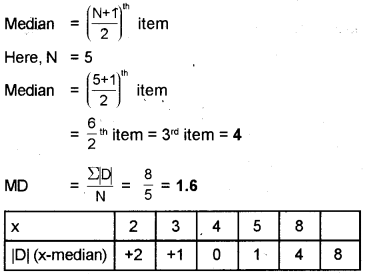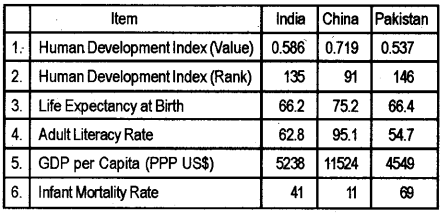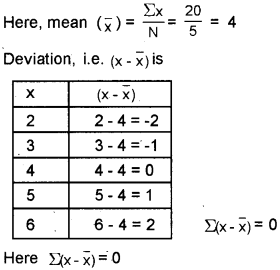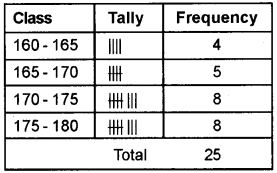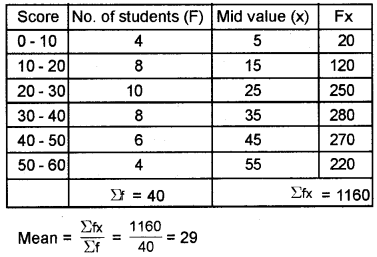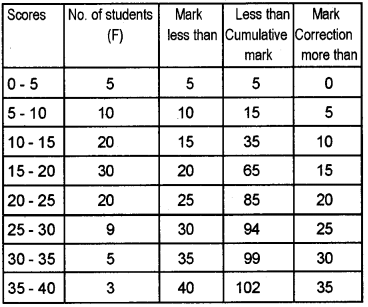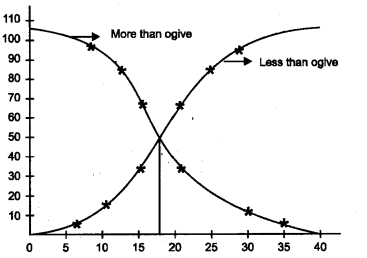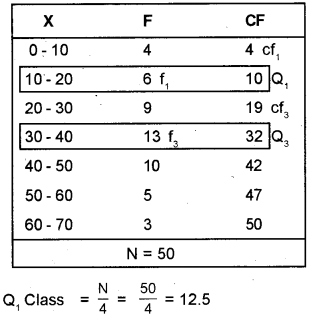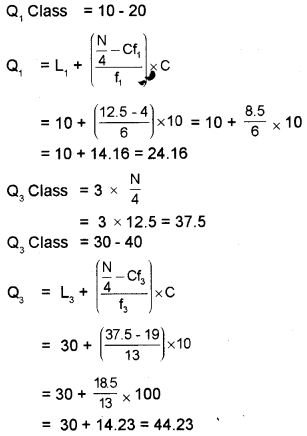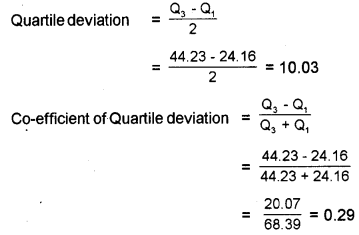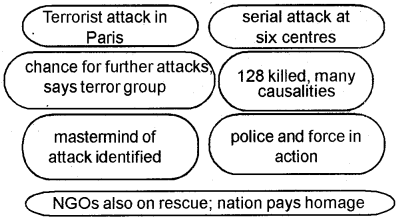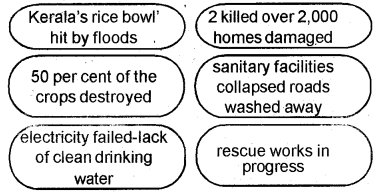Kerala Plus One English Model Question Paper 1 with Answers
| Board | SCERT |
| Class | Plus One |
| Subject | English |
| Category | Plus One Previous Year Question Papers |
Time Allowed: 21/2 hours
Cool off time: 15 Minutes
Maximum Marks: 80
General Instructions to Candidates:
- There is a ‘Cool off time’ of 15 minutes in addition to the writing time of 21/2 hrs.
- You are neither allowed to write your answers nor to discuss anything with others during the ‘cool off time’.
- Read the questions carefully before answering.
- All questions are compulsory and the only internal choice is allowed.
- When you select a question, all the sub-questions must be answered from the same question itself.
- Electronic devices except nonprogrammable calculators are not allowed in the Examination Hall.
(Qns. 1 – 3) Read the following excerpt from the story ‘His First Flight’ and answer the questions that follow.
Only his mother was looking at him. She was standing on a little high hump on the plateau, her white breast thrust forward.
Question 1.
Whose mother is referred to in the excerpt? (1)
Answer:
The mother referred to in the excerpt is the young seagull’s mother.
Question 2.
What is the implied meaning of the first sentence? (2)
Answer:
The implied meaning of the first sentence is that only his mother was concerned about him. His father and his two brothers and sister had nearly forgotten him as they were busy with their own things.
Question 3.
Write a note on the role of parents towards the well being of their children. (3)
Answer:
The parents have a big role towards the well-being of their children. The parents have to make sure that their young children are capable of fending for themselves as they grow up. In the story we see how the parents are trying to train their children in the art of flight. They taught them to skim the waves and to dive for fish.
We see how happily the parents made a proud cackle when one of their sons caught his first herring. We even see the parents of the young seagull shouting at him, scolding him and threatening him to starve when he refused to fly like his brothers and sister.
Question 4.
Imagine that you are the curator (a person in charge) of a renowned Museum of Arts, visited by thousands of tourists every year. Prepare an introductory speech to welcome the tourists to the museum. (3)
Answer:
Ladies and Gentlemen, Boys and Girls,
As the Curator of this prestigious Museum of Arts, I wholeheartedly welcome you here. It is an ideal place to acquaint yourself with the rich heritage of the State of Kerala. The first thing that will capture your attention as you step inside the museum is a big statue of Sage Parasurama, who supposedly created Kerala by reclaiming the land from the sea. Exhibitions, demonstrations, literary discussions, art fairs and performances are organised at the museum on a regular basis.
The museum houses about 50 sculptures created by famous artists like Kanai Kunjuraman. There is also a 25 feet long and 5 feet wide mural painting, depicting a scene from the popular Sanskrit drama Shakunthalam by Kalidasa. Do not miss to explore the Gallery of Miniatures and Art Gallery, where you will be amazed to see some marvellous artwork.
Interestingly, there is another museum within the complex, called the Dolls Museum, which has more than a hundred dolls and traditional costumes on display. You will also find here costumes of Kathakali, Mohiniyattom and Theyyam.
Miniature of elephants presented at the Thrichur Pooram can also be been. There are paintings and sculptures reminding you of the festivities of Onam and Vallamkali. I am sure you will have a nice time walking around here and observing these rare exhibits. Thank you very much for coming to visit this Museum of Arts.
Question 5.
Fill in the following passage choosing the right word given in the box.
![]()
Frank and Isobel Hawking, Stephen’s parents, were not wealthy, (a) ……….they believed in the value of education, (b) ………. they planned for Stephen to go to Westminster, a famous public school in the heart of London, (c) ……….. Stephen was ill at the time of the scholarship examination for Westminster, (d) ………… he attended the local Saint Alban’s School. (4 × 1)
Answer:
(a) but
(b) So
(c) Unfortunately
(d) Therefore
Question 6.
Your class has to conduct a debate on the topic ‘Internet – a menace to the society’.
Prepare four arguments in favour of the topic. (4 × 1)
Answer:
The Internet is a real menace to the society. It is taking away people’s valuable time which could be used for better purposes. It is especially dangerous to the youth. Today youth have been called Net generation, Millennium Generation and Digital Natives. They spend their time with their tablets, i-pads and mobile phones.
They get lost in the glitz and glamour of the screen. They spend all their time watching movies, cricket or some sports, listening to music of their choice or playing various games. They have access to movies showing explicit sex scenes. Many people use the Internet for perpetrating crimes. Religious fanatics use it for spreading their pernicious ideas, dividing people and making them hate one another. The Internet also destroys culture. It tries to bring in some kind of uni-culture.
Youth blindly imitate the modes of dressing, the style of walking and even the way of talking of some popular films stars or cricketers. They now write SMS language. ‘Hi bro, y r u l8?’ is the modern way of writing ‘My dear brother, why are you late?’ Even food habits of the people are changed because of the onslaught of the Internet. Now people prefer KFC (Kentucky Fried Chicken), McDonald’s Burgers and Pizza. They are addicted to Coke and Pepsi.
I would say that alcoholism and drug addiction are also the result of the digital culture where successful men are always shown drinking and smoking. The Internet tempts boys and girls to get the latest gadgets, cars and bikes. When they fail to get them in the normal way, they try criminal methods. I would therefore definitely say the Internet is a menace to society.
(Qns. 7 – 11) Read the following passage and answer the questions that follow.
Nobody becomes a champion unexpectedly. Success and fame are only the final points of a long challenge. The world of sports is replete with stories of champions who saw themselves not as what they were but as what they could become. They are the soul and spirit of the world of sports.
Wilma Rudolph put Black Women on the world map of athletic. Born prematurely, she weighed only 2.04 kg at birth. Her health did not improve. To make it worse, she had an attack of polio, double pneumonia and scarlet fever, at the age of four. She lost the use of her left leg. She was in bed for two years. First, she walked with supports. Then, her supports gave way to orthopedic shoes. Thus her leg gathered strength after strength.
Next she could play basket ball without her orthopedic shoes. This gained her a place in the school team. Soon, she found a place in the American squad for the 1956 Olympics. She could win only a bronze as a member of the 4 x 100 metres relay team. But, in 1960, she became a superstar winning two gold medals for USA. Thus, Wilma Rudolph has proved that nothing can stop her strong will.
Choose the right option for the following:
Question 7.
The word ‘replete’ means –
a. full of
b. filled
c. complete
d. none of these (1)
Answer:
a. full of
Question 8.
The word ‘prematurely’ means –
a. at the right time
b. before the usual time
c. after the usual time
d. none of these (1)
Answer:
b. before the usual time
Read the above passage again and answer the following questions.
Question 9.
What were the adversities Wilma Rudolph faced in her childhood? (2)
Answer:
The adversities Wilma Rudolph faced in her childhood were her premature birth, the attack of polio, double pneumonia and scarlet fever when she was 4. She lost the use of her left leg. She was in bed for2 years.
Question 10.
How did Wilma become famous? (2)
Answer:
After losing the use of her left leg, she started walking with supports, later with orthopedic shoes. She began to improve and gained her place in the school team. Soon she found a place in the American squad for the 1956 Olympics. She won a bronze as a member of the 4 × 100 metres relay team. In 1960 she became a superstar winning two gold medals for USA.
Question 11.
‘Where there is a will, there is a way’. Is this statement true in the case of Wilma Rudolph? Establish your answer in a few sentences. (Word limit: 40 – 50 words). (4)
Answer:
The statement ‘Where there is a will there is a way’ is true in the case of Wilma Rudolph. As a child she had many adversities -. premature birth, the attack of polio, double pneumonia and scarlet fever, resulting in the loss of the use of her leg. She was in bed for 2 years. Then she walked with supports and later with orthopedic shoes. She got a bronze as a member of the 1956 Olympic squad in the 4 × 100 metres relay. In1960 she became a superstar winning two gold medals for USA.
Question 12.
A group of ‘Save Nature, Save Lives’ movement members visits your school. They like to visit a few tourist destinations in your district.
Prepare a short write-up about one or two famous tourist centres in your district.
(Hints : name – location – major attractions – how to reach there, etc.)
Answer:
ATHIRAPPLLY FALLS
Athirappally Falls in Kerala is nicknamed The Niagara of India’. It is a 24-meter (80 ft) waterfall near the Vazhachal Forest Division and the Sholayar ranges. It is a thrilling sight especially in the monsoon season. At the Athirappally Falls, the water of the Chalakudy River surges around big rocks and cascades down in three separate paths. Below the falls the river remains turbulent for about 1 km. Then it calms down and flows smoothly until reaching the dam at Thumboormuzhi.
Wildlife in the area includes the Asiatic elephant, tiger, leopard, bison, sambar and the lion-tailed monkey. Different types of hornbill live in this area. Plantations in the area contain teak, bamboo and eucalyptus. This area is renowned for its biodiversity. You will see God’s plenty here. Visitors can reach the top of the waterfall via a paved path that leads through thick bamboo clusters.
A steep narrow path also leads to the bottom of the falls. The best time to visit this wonderful place is between June and September. Many films are shot here because of its glory, splendour and scenic extravaganza. If you love Nature, beauty and adventure, come to Athirappally and enjoy its breathtaking view. It is truly the Niagara of India. Niagara is much bigger but it does not have the wildlife and the biodiversity seen in this miraculous place. Athirappally is 30 km to the west of Chalakudy.
The journey from Chalakudy to the Falls passes through a landscape of winding roads, small villages and lush green trees. If you enjoy local food, you will find a lot of small restaurants on yourway where you can enjoy local dishes. But be careful! Some of them could be very spicy and hot!
(Qns. 13 – 14) The following lines are taken from the poem ‘Death the Leveller’. Read the lines and answer the questions that follow.
THE glories of our blood and state
Are shadows, not substantial things;
There is no armour against fate;
Question 13.
What does the word ‘blood’ mean here? (1)
Answer:
Blood means family status or origin.
Question 14.
Elaborate the idea in the above lines. (3)
Answer:
The poet is telling us that Death levels everything and everybody. Death does not distinguish between the rich and the poor, the educated and uneducated, man or woman. Even if you are born into a royal family and have a lot of wealth, it means nothing to Death. There is no protection against death. When Death comes, you have to simply bow your head and accept him whether you like it or not. Everyone has to die.
Question 15.
One of the passengers in the balloon ‘Le Horla’ was interviewed by a Belgian reporter. The following are some of the responses made by the passenger. Read the responses and prepare the likely questions.
Reporter : How was your experience during the balloon journey?
Passenger : Wonderful! I enjoyed it very much. The view from the balloon was fantastic.
Reporter : (1) ……………………………………………….
Passenger : It was my first experience. So, I was tensed at the beginning, but as it flew up I became excited.
Reporter : (2) ………………………………………………..
Passenger : Yes, definitely the view was superb; it was dark on the earth and we were in the light.
Reporter : (3) ………………………………………………..
Passenger : The captain was very efficient and friendly. At the time of the emergency landing he gave us necessary directions to ensure our safety. (3 x 1)
Answer:
1) Have you flown earlier? How did you feel?
2) Was the view great? How did the earth look from there?
3) How good was the captain?
Question 16.
Complete the following report using the correct form of the verbs given in brackets. (You need not rewrite the given sentences.)
A seminar on ‘Increasing Road Accidents’ (a) ……….. (hold) at JBN Hall yesterday, at 2 pm. About 200 students (b) ………… (turn out) to attend the seminar. Kumari Suja, the School Leader, (c) ………. (be) the moderator. Three papers (d) ………… (present) in the seminar. (4 × 1)
Answer:
a) was held
b) turned out
c) was
d) were presented
Question 17.
In the story ‘The Serang of Ranaganji’, Hasan says: ‘What use is money Doctor Sahib, to one who has all he needs? I am well enough the way I am.’ Do you agree with Hasan in his attitude towards money? Justify your answer in a paragraph. (4)
Answer:
I quite agree with Hasan in his attitude towards money. Money is the means by which people try to acquire what they need. Some people have greater needs than others. Needs are unlimited and one can go on earning money without any limit.
We can see some of the richest men in the world working round the clock to make more money because their needs are also unlimited. A man may be satisfied to have a one-bedroom house. But some rich people have houses with dozens of bedrooms. One may be satisfied with just a pair of dresses. But some would want hundreds of pairs.
Recently we heard the story of a lady who had more than 3000 pairs of footwear! The basic needs of a man are ‘roti, kapda and makan – food, clothes and shelter’. Hasan has them and he is happy. For him there is no use for money. Weren’t people like Mahatma Gandhi and Mother Theresa happy with the little they had?
Question 18.
‘If you could bring yourself to tell mother only once, after looking into the crystal, that Frank is all right, that he is alive – will it be too much of a lie? Will it be very, very wrong?’ As she spoke, tears streamed from her eyes. (From ‘The Price of Flowers’)
What trait of Maggie’s character is evident here?
Sketch the character of Maggie in a short paragraph.
Or
‘Please buy flowers with this shilling when you go, and lay them on my brother’s grave for me’, she said.
Can you find any connection between this sentence mid the title of the story?
Write a short paragraph about the significance of the title, ‘The, Price of Flowers’. (5)
Answer:
Note: Students have to answer only one of the options given under this question. But both are answered here for the convenience of all students, a) What is evident from the extract is Maggie’s love and concern for her mother.
Maggie’s full name is Full name Alice Margaret Clifford. She is a young English girl. She is 13 or 14 years of age. When we see her first she is wearing poor clothes showing she is very poor. Her hair hung in a heavy stream down her back. She had large eyes with a sad expression. She works in a shop close the restaurant where she met the writer. She goes to the restaurant only on Saturdays because Saturday is pay day.
Maggie is a hardworking girl. She lives with her old mother in a small house. Her only brother Francis is in the army and he is in India. She loves her brother very much and he too loves her. She loves her mother. She nurses her when she is sick.
She is superstitious. That is why she believes in the story told by her brother that by looking into the crystal ring one could see people who are far and what they are doing, if one thinks of them and looks into the ring carefully. She is very disciplined. She has polite manners and this is clearly shown in her behaviour.
Maggie is ambitious and she is not happy with her work in the shop. She says it is a mechanical job. She wants to do a job where her brain can be used. When she gets a better job she will rent o a better house and take her mother there. It shows much she cares for her mother.
When her mother is in a critical condition she even asks Mr. Gupta to tell her mother a lie about her brother so that the mother feels better by hearing that her son is alive and well in India.
Maggie is a very fine girl. She wants Mr. Gupta to go to the grave of her brother who is buried in India and gives one shilling to him. A shilling is a lot of money for a poor girl like her. To get that, she has to work hard for many days. Her action shows how much she loved her brother.
Her sacrifice brings tears to the eyes of Mr. Gupta and we too are moved to tears when we see such selfless love of a teenage girl for her dead brother. I can easily say that Maggie is a model for girls of her age.
Or
b) There is a fine connection between the sentence “Please buy flowers with this shilling when you go, and lay them on my brother’s grave for me” and the title of the story – ‘The Price of Flowers’. The title is very significant and most apt. Maggie loves her brother very much. His name is Francis or Frank.
He was a soldier working in Punjab. He had sent some pictures of Simla and the mountainous places around it on Maggie’s last birthday. He also had sent her a ring with a crystal which a yogi had given him. The yogi told him that if someone looked into the crystal concentrating his attention on a distant person he could see him and what he was doing.
Both Maggie and her mother tried to see Frank through the crystal but they never could see him. Unfortunately Frank was killed in a fighting and he was buried at Fort Monroe near Dera-Ghazi-Khan. When Maggie came to know that the author was going to India, she goes to him and gives him a shilling to buy flowers and lay them on her brother’s grave. To make that one shilling she had to work very hard.
Thus the price of flowers is not to be seen as just one shilling but the amount of hard work she had to put in to obtain that one shilling. The real price of the flowers is her priceless love for her dead brother.
Question 19.
Your class is conducting a group discussion on ‘The Relevance of Gandhian ideas in the 21st century. Imagine that you are also participating in it. What would you speak? Prepare a script for your presentation. (Word limit: 50 to 60 words) (5)
Answer:
I would say that some of the Gandhian ideas are quite relevant even in the 21st century. The biggest idea of Gandhi was non-violence. The modern world is plagued with violence. Every day we hear of wars and killings. People are killing one another in the name of religion.
Even India is not free from religious intolerance. Gandhi taught us “IshwarAllah Tere Nam! Sabko Sanmati de Bhagwan!” It means the name of God can be different – some people call him Ishwar and some call him Allah. Both are the names of the same Almighty. So there is no need to fight, as we all -Hindus, Muslim, Sikh, Christians, Buddhists – are the children of the same Father.
Gandhi taught people to practise truth. In fact his autobiography is titled ‘My Experiments with Truth’. In our dealings with others, we have to be guided by truth. He also taught us the dignity of labour. Every work has its dignity. He wanted us to eschew casteism and the feeling of high class and low class. In fact he called the members of the Scheduled Castes as ‘Harijans’ – people of God.
Unfortunately we refuse to listen to his ideas. We call him the Father of the Nation but when it comes to practising his ideas we don’t show any zeal or enthusiasm. His ideas of truth, non-violence, hard work, respect of human rights, etc. are still very much relevant in the 21st century.
Question 20.
Nicholai, in the story ‘Gooseberries’, has plans to buy an estate. He comes across the following advertisement in a newspaper.

Nicholai calls the agent. Write the script of the telephonic conversation between Nicholai and the agent. (4)
Answer:
Nicholai : Hello! Is that the Estate Agent?
Agent : Yes, speaking. May I know who is this?
Nicholai : I’m Nicholai. I saw the advertisement about the 300 acres with a farm house, and park.
Agent : It is also nearby a river.
Nicholai : I saw that too. But the price quoted is too much. 3 million (30 lakhs) roubles.
Agent : It is negotiable.
Nicholai : Yeah, it is negotiable. What would be your final price?
Agent : We can come down to 2.5 million, i.e. 25 lakhs. For that price it would be a very good buy.
Nicholai : I made some enquiries from the nearby places. I came to know that the selling price there is about 5000 roubles per acre.
Agent : You mean you want to buy that estate for just 15 lakhs? No way! I don’t think it is a fair price at all for this particular estate. You may get some very bad estate for that price. But not this one.
Nicholai : I am willing to increase a bit. Let me give 6000 roubles per acre.
Agent : That would be only 18 lakhs. That is far below the expected price. I said 25 and you are saying 18.1 will come down a bit. Let’s make it 22 lakhs.
Nicholai : 22 lakhs is too much. Since you are willing to negotiate, let me quote my last price. I will give you 20 lakhs! And that is final. No more bargaining.
Agent : Alright. We shall meet tomorrow and work out the deal. Give me your details.
Nicholai : Nicholai Pedro, Boris Avenue, 17th Street. Moscow. Phone 72674657898. Email [email protected].
Agent : I got it. I will meet you tomorrow at 10. Bye!
Nicholai : Okay! Bye!
Question 21.
Imagine that you had a parachute ride over a valley.
Write a travel essay describing this experience. The essay should include description of the physical features of the area, the practical issues related to the travel, and your experiences and personal impressions. (6)
Or
Narrate Le Horla’s take off from the spectator’s point of view.
You may begin thus: ‘In one second, they fly skyward. Nothing can be heard; they float, rise, fly, and glide!’……….
Answer:
(There are two questions here. Both are answered for the convenience of the students.)
a) MY TRIP TO THE TITUS MOUNTAINS IN THE ALPS
My parents had promised me a foreign trip if I passed my SSLC with very high scores. I worked very hard and I passed with distinction. So my parents allowed me to go on a trip to Europe. Since travelling alone would be difficult, I decided to join a tour group organized by the company called Intersight, Kochi.
The first problem was getting a European visa. The company said it would get it for me. I was planning to go in April. April is hot in Kerala, but in Europe it is still cold. So I had to get warm clothes for the trip. I also needed a good camera.
We started our travel from Kochi. The representative from the Intersight was there to organize things. I reported to the airport 3 hours before the take off time. After completing the check-in, I went for the immigration formalities. After a thorough body check, I was allowed to go into the comfortable waiting lounge.
We were flying by Qatar Airways to Zurich. The flight was announced and we got into the aircraft. It was a huge aircraft. The smiling air hostesses showed us to our seats. Soon we took off. We were served refreshments. After that I watched an in-flight movie. After 3 hours, we landed at Qatar airport. It is a huge airport. We had to spend some time at the airport lounge to get our flight to Zurich.
The flight to Zurich was also by Qatar airways. We were served meals in the flight. After the meals I went off to sleep. Eight hours later, we landed at Zurich. We were taken to our hotel in a coach. It was then I came to know who the people in the group tour were. There was another boy of my age and soon we became friends.
Our first visit was to the Titlis Mountains, in the Alps. On our way, we saw the life of the people. How disciplined people were. How nicely they behaved on the roads. No animals and birds crossed the roads. We hardly saw anyone walking on the roads. On both sides there were fields. We could see cattle grazing. Switzerland is a beautiful country.
Soon we reached Titlis. We would be taken to the top by ropeways and lifts. We reached the top. The scene was breathtaking. The whole area was covered with snow and ice. People were skating. We went for an ice-tunnel walk. They have built a tunnel in the ice and I walked for nearly a kilometer inside the tunnel. Ice on top, ice at the bottom and ice on both sides. It was a wonderful experience. I was exhilarated.
Tomorrow we would go to Paris by coach to see the Eiffel Tower and other wonderful sights of that great city.
OR
b)
TAKE OFF OF LE HORLA
“In one second, they fly skyward. Nothing can be heard; they float, rise, fly and glide!” People standing on the ground scream with joy. Le Horla climbs above the city of Paris and it is slowly disappearing. The sight of the earth from the balloon will be fantastic. Now we can see it only as a small object.
The Captain of Le Horla is Jives. The others in the basket attached to the balloon are Lieutenant Mallet, M. Eterine Beer and Mr. Paul Bessand. In fact M. Patrice Eyries was also supposed to be there. But unfortunately he could not go as the balloon could not carry all of them because of the weight. Poor Patrice. He is feeling very sad. He is looking up and surely he is feeling disappointed. He is missing a big chance of his life. He had made a lot of preparations for this flight.
He had told about his flight to all relatives and friends and many of them had come there at La Valletta, from where Le Horla was to take off. They also feel sad that he could not make it. They try to console him by saying he can make it next time. As we look to the sky, we see Le Horla descending. Is it coming back? Did they have any problem? As the balloon was descending we were worried. We were praying for the passengers.
It continued coming down and our pulse rate was increasing. Thank God, now it is climbing again. May be the wind was the problem. We stood there and wondered how the people inside Le Horla would be thinking now. Are they worried? Are they excited? What fine sights would they see? We wished them good luck in their flight. When they come back we will listen to their stories.
Question 22.
In the essay ‘Disasters and Disaster Management in India’, you have learnt that constructing buildings according to proper guidelines and using good quality materials can reduce the risk arising from disasters. However, you find people violating the norms laid down by the government for constructing such houses. You decide to write a letter to the editor of a local daily to bring this matter before tire authorities and the public. Draft a letter which you would send to the editor! (6)
Answer:
Azad Road
Kaloor, Kochi
PIN 400 121
17 July 2015
The Editor
Indian Express
Kochi Edition
Kochi
Dear Sir,
USING SUBSTANDARD MATERIALS FOR CONTRUCTING BUILDINGS
The Kochi Metro has brought construction boom in Kochi and its environs. We the residents of Kaloor, close to the Nehru International Stadium, are witnessing the rise of multi-storeyed buildings all around. Recently a building, very closeto the stadium, collapsed killing 3 out-of-State workers.
Since they were from Bihar, the matter was hushed up without giving the tragedy wide publicity. But the fact remains that many of the buildings under construction are in danger of falling down sooner or later. The greedy contractors use substandard materials for the construction work. They reduce the quantity of cement, because cement is quite expensive. They use low-quality sand as good sand is also expensive.
The iron used in the construction work is of low quality as it rusts with the slightest contact with moisture. The contractors break all the norms of construction laid down by the Corporation. Some unscrupulous corporation officials close their eyes to the reality and give fitness certificates to such poorly constructed buildings. These buildings endanger the lives of people who live in them.
People should respect human lives which are priceless. Just because some people want to make easy money, they construct poor quality buildings and sell them to the public. The Corporation and other authorities in the State should ensure that buildings are constructed according to the safety norms prescribed by the Government.
Yours sincerely,
(John Abraham)
Question 23.
Read the sonnet given below and write a note of appreciation.
Upon Westminster Bridge
William Wordsworth
Earth has not anything to show more fair:
Dull would he be of soul who could pass by
A sight so touching in its majesty:
This City now doth like a garment wear
The beauty of the morning: silent, bare,
Ships, towers, domes, theatres, and temples lie
Open unto the fields, and to the sky,
All bright and glittering in the smokeless air.
Never did sun more beautifully steep
In his first splendour valley, rock, or hill;
Ne’er saw I, never felt, a calm do deep!
The river glideth at his own sweet will:
Dear God! the very houses seem asleep;
And all that mighty heart is lying still! (8)
(Westminster Bridge : the bridge across the river Thames in London, hath : has, doth : does, dome : round roof, glideth: glides)
Answer:
The poem ‘Upon Westminster Bridge’ by William Wordsworth is a sonnet. A sonnet is a lyric poem of 14 lines. The first 8 lines are called an Octave and the next 6 lines are called a sestet. Usually there is twist in the sestet, making it different from the Octave. The sonnet follows certain rhyming schemes.
The first eight lines of the poem present a view of the city as it wears the sunlit morning like a garment and its edifices glitter beneath the sky. The poet says that the earth does not have anything to show fairer than this sight. One who passes this sight without noticing it must be a dull person.
The morning is beautiful, silent and bare. Ships, towers, domes, theatres and temples lie open to the fields and to the sky. They are all shining as the air is without any mist and smoke at the moment. In the last six lines the poet says that the sun never steeped the valley, rock or hill in greater glory than he is doing now. The River Thames is flowing at its own sweet will. Even the houses seem asleep.
The mighty heart of London seems to lie still. Soon the city will wake up and all the noises will start. Wordsworth is a poet of Nature. He is often called the High Priest of Nature. To him Nature was a mother, a teacher and a guide. Along with Samuel Taylor Coleridge, he wrot^the ‘Lyrical Ballads’ and the introduction they wrote is supposed to be the starting point of Romanticism in English poetry.
The poem ‘Upon Westminster Bridge’ has many special qualities. It has some figures of speech. The most striking figure of speech in the poem is personification. It dresses the city in a garment and gives it a heart. It makes the sun “in his first splendour” a benefactor, and bestows on the river a will of its own. It has fine alliteration: a sight so touching. It has a simile: This City now doth like a garment wear the beauty of the morning: silent bare (comparison of beauty to a garment). There is also a metaphor: the very houses seem asleep (comparison of houses to a creature that sleeps).
The rhyme scheme in the octave is abba, abba, and in the sestet it is cdc, cdc. On the whole, it is a fine sonnet by the master of Romantic Poetry, William Wordsworth.
